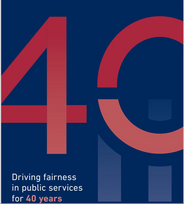Ombudsman Annual Report 2023
Nearly 4,500 complaints about public services were made to the Office of the Ombudsman in 2023. Ombudsman, Ger Deering, has seen a 30% rise in the number of complaints to his Office in recent years, from 3,418 in 2020 to 4,465 last year.
In his annual report for 2023 the Ombudsman highlights the issues involved in some of the complaints he received, including:
- An outdated appointments system in St Vincent’s University hospital, Dublin, which resulted in an appointment for a transplant patient not being made and their diagnosis of cancer delayed.
- The Rotunda hospital refusing to deal with a complaint from a couple whose new-born baby had died because the complaint was not made within a 12-month time limit.
- A man who was not fully informed of his pension entitlements by the Department of Social Protection and missed out on pension payments of €46,000 over four years as a result.
- A third-level student who was refused access to the Higher Education Access Route scheme (HEAR) due to the occupation of her ‘absent’ father.
40 years of the Ombudsman
This year, 2024, marks 40 years of the Office of the Ombudsman which deals with complaints about most public bodies including local authorities, government departments, the HSE and voluntary hospitals.
Speaking on the publication of his 2023 annual report, Ombudsman Ger Deering highlighted the importance of the Office:
“The establishment of the Office of the Ombudsman in 1984 was an important step in strengthening democracy in Ireland. Now, as human rights and democracy are under attack globally, the role of the Ombudsman is more necessary and relevant than ever. We remain determined to continue to improve the quality of public services and ensure everyone’s right to be treated with respect and dignity.”
To read the full article, kindly click here.
To read the annual report, please refer to the download section below.
Source: The Office of the Ombudsman, Ireland

